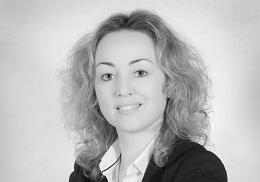
Vicenta Tasa Fuster has received the 2017-2018 Outstanding PhD Award in the area of Law for her thesis “Drets lingüístics i ordenament constitucional. Seguretat lingüística versus jerarquia lingüística. Un estudi comparat de Suïssa i Espanya” (‘Linguistic rights and Constitutional Law. Linguistic security versus linguistic hierarchy. A comparative study of Switzerland and Spain’). The work has been directed by José María Vidal, professor of Constitutional Law at the University of Valencia, and Joan Subirats, professor of Political Science at the University of Barcelona.
Vicenta Tasa Fuster has a degree in Law from the University of Valencia and a doctorate in Constitutional Law of the same institution. In addition to receiving this award, his doctoral thesis received the 2017 Manuel Durán i Bas Law Award from the Institute of Catalan Studies for the best research work. In addition, she has a Master’s Degree in Public Management and Institutional Leadership from the University of Vigo.
She currently works as a tenure-track 1 lecturer in the Department of Constitutional Law of the UV and is part of the Identity and Culture Research Group of the Nexe Foundation.
What difficulties have you encountered?
I have not encountered any special difficulties. Although, in my case, I had to combine the thesis and my professional work, and that has forced me to organise the schedules very well and to make an important overexertion. Without the help of my family and their understanding it would not have been possible.
What continuity does this research have?
The subject matter of my research work is the basis of one of my lines of research today and I believe that it will continue to be so for a long time in the future.
What do you think your research contributes to the scientific community as a whole and to society? And to you?
I understand that my research in the field of linguistic rights, from the perspective of comparative constitutional law, allows a better knowledge of the Spanish constitutional reality, its potential and its limitations, and that is always useful for the scientific community.
As for society, I think it is a work that can be used as an instrument of analysis and basis for a greater respect of linguistic rights in a multilingual, cohesive and inclusive society. And, as for me, it has been a very positive experience and a whole way of learning.
What applicability can your work have?
In the case of my research, this absolutely applies because it has a prescriptive, as well as analytical and reflective, orientation. But this obviously depends on the political will of pluralist reform of the Constitution.
Does getting a Doctorate facilitate employability?
All studies on the subject indicate that people with university degrees, and especially doctorates, have more possibilities to work and do it in jobs that are better paid and more satisfactory than the average population. However, a doctorate does not entail finding a job by itself and that this is directly related to the field of study.
Would you recommend starting doctoral studies? What advice would you give to a person who wants to get a PhD?
Everyone always speaks based on their experience, but if you ask me for a recommendation, I would say that it is worth it, both due to the acquisition of new knowledge and for the personal satisfaction that this entails.
As I already said, it is not easy to give advice, but in my case I took Umberto Eco’s saying into account about the fact than when making a doctoral thesis or a research paper the first question that needs to be analysed is our time availability and access to the sources of the object of study; established this, the rest is effort, patience and perseverance.
Have you actively participated in dissemination activities and scientific communication? How important do you think these activities are?
Yes, I have participated in many dissemination and scientific communication activities, and I think they are very important. Science cannot remain locked inside the academic field and specialised magazines. It is good that scientific work is known and understood by most of society.

.jpg)







